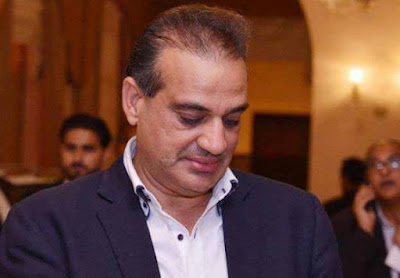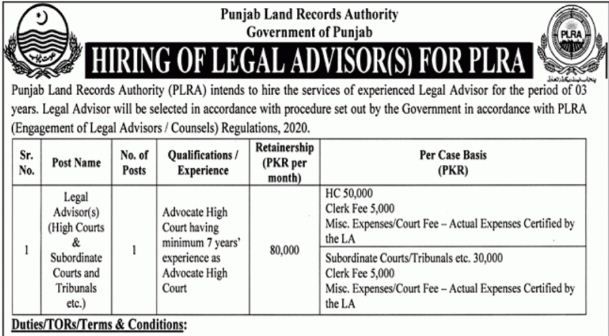General elections still doubtful? Some musings
Analysis
Ansar M Bhatti
It is intriguing to observe that, as the elections draw near, a substantial number of political parties have not yet initiated a comprehensive election campaign.
An exception to this trend is evident in the PPP, which has actively shifted into election mode. Up until now, the momentum seemed to favor the PPP; however, a pivotal moment occurred with Asif Zardari's interview on a private TV channel a couple of weeks ago, sending waves of unrest within the party ranks.
In response, PPP Chairman Bilawal Bhutto Zardari found himself compelled to hastily depart for Dubai, abruptly interrupting the ongoing election campaign. This unexpected development has added a layer of complexity to the political landscape and warrants close observation.
Asif Zardari seized immediate media and public attention by unequivocally asserting his authority in awarding party tickets for the upcoming elections, thereby overshadowing Bilawal and rendering him seemingly irrelevant.
This announcement came in response to Bilawal's stance advocating for a transition of power to the younger generation, implying that the old guard, including his own father, should step aside. Initially, analysts speculated that Bilawal was alluding to figures like Nawaz Sharif, but it became evident that his own father was the intended target as well. In light of this revelation, Asif Zardari entered the fray, intensifying the rift between father and son.
This controversy has precipitated a consequential face-off within the party, and its resolution at this juncture is imperative to avert potential detriment to the party's prospects in the upcoming elections.
There is a prevailing sentiment within the PPP that having Asif Zardari at the helm could pose a significant challenge due to his less-than-impeccable reputation.
Concerns linger that the party might face substantial setbacks if it ventures into the elections with Zardari in a prominent role. In contrast, Bilawal Bhutto is seen as a more forward-looking and popular politician, having improved his credentials over time. Bilawal himself believes that his tenure as the foreign minister in the PDM government garnered him international acceptance as a prospective leader for Pakistan.
While Bilawal's optimism about his global standing holds some merit, the reality at home presents a myriad of challenges. Leading a party historically marred by allegations of corruption, Bilawal confronts the daunting task of addressing public skepticism and countering the party's past tarnished image. Despite his aspirations for international recognition, the intricate web of domestic challenges demands careful navigation for Bilawal to solidify his leadership and enhance the party's credibility in the eyes of the electorate. But that is possible only when he has full support of his father.
Internal divisions within the People's Party could significantly advantage the PML-N, considering that the PPP is currently the primary contender challenging the PML-N in the political arena. The PTI, having already experienced internal challenges, is perceived to be significantly weakened, and there are expectations that any remaining strength within the party might further splinter. This fragmentation would strategically prevent the PTI from emerging as a potent threat to the PML-N, which seems to enjoy a favored status with the Establishment.
In essence, the rifts within the PPP create a political landscape where the PML-N stands as the dominant force, particularly in the absence of a consolidated and formidable opposition. The potential disarray among rival parties positions the PML-N favorably, strengthening its political standing and reinforcing the perception of it being the preferred choice for the Establishment.
The unfolding dynamics within these political entities will undoubtedly shape the broader narrative of the upcoming elections and the power balance within the political landscape.
According to certain sources, there have been attempts by the Establishment to court the PTI, utilizing figures such as President Arif Alvi and former minister Muhammad Ali Durrani as intermediaries.
These reports suggest that the PTI was presented with an offer, proposing control over two provinces—Punjab and KPK. However, a condition was attached, stipulating that either Ch. Pervez Elahi or Shah Mahmood Qureshi should be endorsed by the PTI Chairman to lead in Punjab. Imran Khan reportedly declined this proposition outright.
In response to the rejection, the Establishment opted to bolster the newly-formed IPP, spearheaded by Jehangir Tareen and Aleem Khan. This development sheds light on the intricate political dynamics at play, with negotiations and alignments taking shape behind the scenes, showcasing the delicate balance of power and influence within the political landscape.
Despite the intricate political maneuvers and strategies employed by both the IPP and the PML-N, they have thus far been unsuccessful in garnering the support of the people. The public sentiment continues to favor the PTI and its chairman, who is perceived by many as a messiah figure.
This suggests that, despite the efforts and tactics implemented by other political entities, the PTI maintains a distinctive and enduring appeal among the populace. The challenge for the IPP and the PML-N lies in understanding and addressing the factors that contribute to the continued resonance of the PTI and its chairman as a preferred choice in the eyes of the electorate.
Despite the unequivocal directives from the Supreme Court mandating elections on February 8, 2024, widespread skepticism persists regarding the timely conduct of the elections. Various factors contribute to the prevailing doubts, casting uncertainty over the scheduled date.
Primarily, key political parties, notably the PML N, have yet to initiate full-fledged election campaigns. The party is currently engaged in organizing corner meetings and dialogues with business entities, indicating a potential lack of preparedness. Analysts posit that the party is grappling with significant internal challenges, particularly in the pivotal province of Punjab.
Furthermore, concerns within the party about its ability to draw substantial crowds loom large. The perceived failure to convincingly dispel suspicions of collusion with the Establishment has created apprehensions, possibly deterring a significant voter turnout.
These multifaceted challenges collectively raise apprehensions about the feasibility of conducting the elections as scheduled on February 8, 2024, because if the so-called ‘King’s Party’ cannot secure a win then the powers-that-be don’t see any rationale in facilitating the election drill on February 8.
The proposition of establishing a unity government for a limited duration, without the necessity of immediate elections, is also being explored. This prospective unity government aims to include all major political parties, with the exception of the PTI. Notably, the PPP, particularly the Asif Zardari group, appears amenable to this proposed arrangement. There is also a possibility of persuading the PML N to join this initiative. However, it is imperative to approach this proposal with caution, considering the challenges encountered during the PDM experience. Lessons learned from that endeavor suggest that the implementation of a unity government without a clear roadmap may potentially yield counterproductive results.






